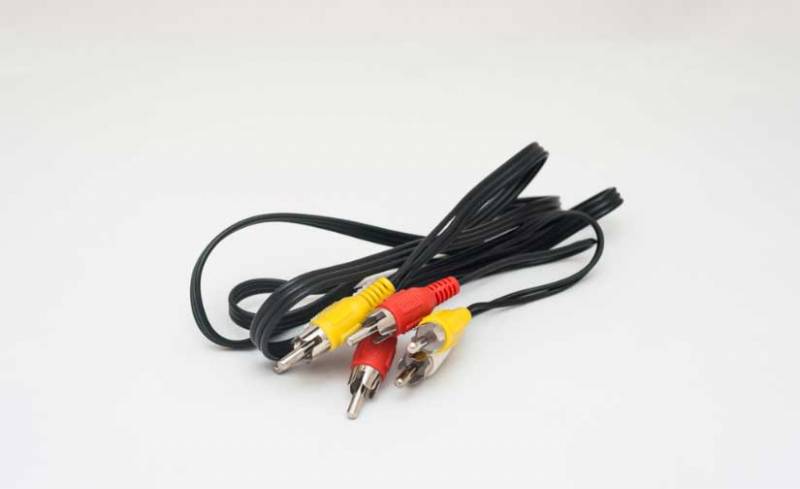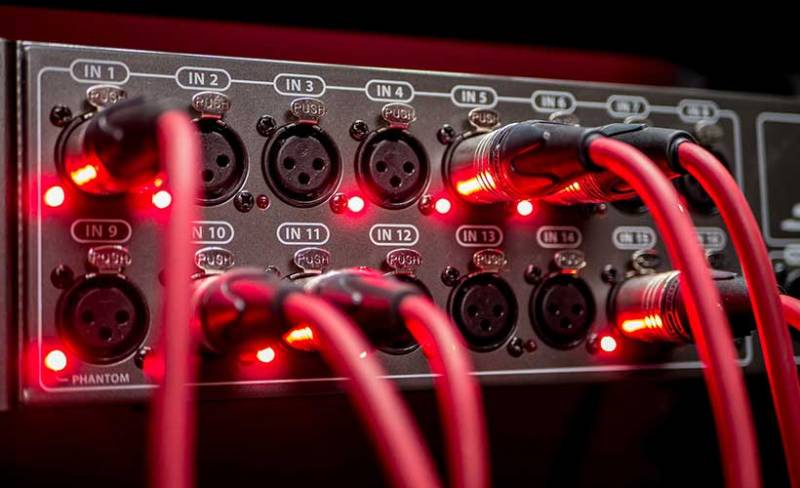Can You Use Speaker Wire For Power?
You’re in the middle of a LEDs or thermostats wiring project and you realize you’re out of speaker wire. But before you head to the store, you might be wondering – can you use speaker wire for power?
We’ve done the research on the specifications of speaker wire and here is what you need to know about using this cable for power runs.

Can Speaker Wire be used for Power?
In order to understand the answer to this question, we must first answer another crucial question: Does speaker wire carry electricity?
yes, speaker wire does carry electricity. in fact, it’s essential for the operation of any speaker system. speaker wire consists of two conductors (positive and negative– usually made of copper), which are wrapped in an insulating material. the electricity flows through the wire to the speaker, where it is used to create the sound waves that we hear.
In this regard, speaker wires and electrical wires are interchangeable, so you can use a speaker wire as an electric wire for power runs. Supposedly, a speaker wire is just as good as a regular power cable.
The idea is that you can connect the speaker wire to your electrical outlets, and it will provide power to your small appliances.
However, it’s good to note that speaker wire is not designed to carry large amounts of current, so it can be a fire hazard or explosion if you use it for main power.
Conditions to use Speaker Wire as Power Cable
Now that we know speaker wire can be used as a power cable, we need to figure out how to use it. Of course, there are a few things you need to keep in mind before you make the switch.
Proper Fused, Switched Plug
First, the speaker wire must be properly fused, and the plug must be switched. Otherwise, you could end up with a nasty shock.
Right Thickness
Second, the speaker wire should be thick enough to handle the current. If it’s too thin, it could overheat and catch fire. For proper flow of current 16 gauge is typical. 10, 12, 13, and 14 gauges can be used for longer runs.
Amperage
Additionally, make sure the wire is rated for the correct amperage. If you’re using it to power appliances, you’ll need to make sure the wire can handle the current.1 standard thickness wire in a speaker cable is about 0.3 Amp, so current handling depends on the speaker wire gauge.
Voltage Rating
The voltage rating of the wire must also be high enough to handle the output of the power output. Most speaker wire voltage ratings conform to voltage output of an amp, e.g 30V.
This means that speaker wire is not ideal for mains power, which is usually rated 120V or 240V.
Wattage Rating
You also need to make sure that the speaker wire is rated for the wattage you need.
For example, if you’re looking for a power cable to run a 100-watt light bulb, you’ll need to find a speaker wire that’s rated for at least 100 watts. Otherwise, you could cause a fire or damage your equipment.
Good Conductor Material
A good speaker wire to switch with electric wire should be made of a good conductor material like copper. That way, you’ll get the best conductivity and your power cable’ will be affordable.
Proper Insulation
If you’re going to use speaker wire as power cable, ensure you get proper insulation. As with electric wires, you don’t want any bare speaker wire touching anything metal. With good insulation, there is also less chance of issues such as short circuits or even fires starting.
Speaker Wire vs Power Wire
When it comes to a power wire vs speaker wire comparison, there are more similarities to talk about compared to differences.

For starters:
- They’re both made of copper
- They also have insulation to protect against electrical shorts, and
- They’re both used to carry electrical signals.
Speaker and power wires are also:
- Graded with the AWG system
- Have stranded configurations, and
- Have positive and negative wires.
That said, the main difference between power wire and speaker wire is the VOLTAGE RATING. Power wire typically has a higher voltage rating than speaker wire because it can handle more power.
Another difference is that some power wires are usually SOLID CORE while speaker wires are usually stranded.
Pros and Cons of using Speaker Wire for Power
Pros
- Speaker wires can be easily bent in tight corners since they are stranded.
- Speaker wires have great conductivity and are not as specific as power cables.
- Speaker wires are excellent for running low DC power to low rated components 9-12V components such as LEDs, doorbells, and thermostats.
Cons
- Speaker wire is not rated for high voltage and can’t be used for mains power.
- Some speaker wires such as those made with aluminum strands can easily overheat.
- If the insulation is thin, speaker wires are not suitable for in-wall runs.
Frequently Asked Questions
Q: Can I Use Speaker Wire for Home Appliances?
No, as most appliances require standard 120V and 240V. Speaker wires typically handle 1/8 to a 1/4 of this voltage.
This means that speaker wire is not designed to carry the amount of electricity that is needed for most household appliances. So, if you try to use it, you could damage your appliances, your wiring, or even start a fire.
Q: Can You Use Electric Wire for Speaker Connection?
Yes, as electric wires have very good sound signal transmission. But the catch is, electric wire has to be stranded for easy wiring. You also don’t want to interchange high voltage electric wires with speaker wires as they will damage your sound components.
Q: What Is the Best Speaker Wire to Use for Power?
If you are looking for the absolute best sound quality, then car power ground speaker wires (OFC) is the way to go. They are more conductive and less prone to corrosion due to elimination of O2 and other impurities.
Q: Can You Run Speaker Cables Near Power Cables?
Yes you can as long as the speaker wire is insulated like the mains cable. A poorly insulated wire will cause electromagnetic interference if you’re pushing too much current, and, in turn, cause crackling sound.
Q: Can You Run RCA Next To Power Wire?
The answer is yes, you can – but it’s not necessarily the best idea. There is a possibility of interference when you run RCA near a power wire, so it’s better to run them away from each other if possible.
The Bottom Line
If you’re looking for an alternative to regular power cords, you might be in luck as you can actually use speaker wire for low-power runs.
In summary, you’ll need to make sure that the speaker wire can handle the voltage and current rating of your electrical devices. You’ll also need to make sure that the speaker wire is thick enough to prevent any electrical shorts.
And lastly, you’ll need to make sure that the speaker wire is properly insulated.